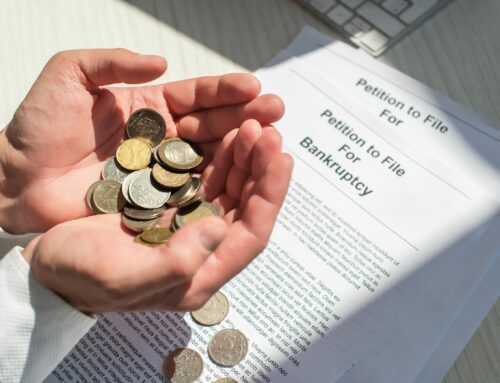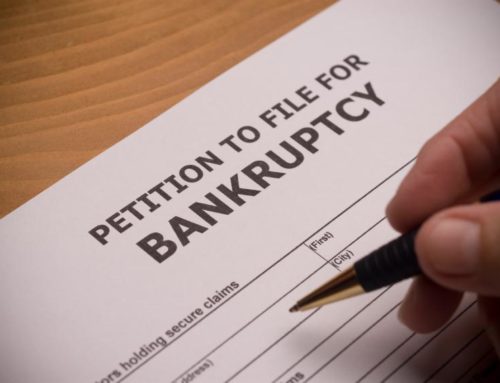 Candy tastes very good but when you consume a lot, it could lead to serious health problems. The same goes for debt, it is a very useful aid to fulfill your needs and wants but it can be disastrous when it starts piling up. Unpaid, mounting debts can result in incessant phone calls from bill collectors. Worse, it could also lead to lawsuits and financial ruin. Let us share with you some techniques to remain sane when the bill collectors start calling, even as you are aware you have bills to pay.
Candy tastes very good but when you consume a lot, it could lead to serious health problems. The same goes for debt, it is a very useful aid to fulfill your needs and wants but it can be disastrous when it starts piling up. Unpaid, mounting debts can result in incessant phone calls from bill collectors. Worse, it could also lead to lawsuits and financial ruin. Let us share with you some techniques to remain sane when the bill collectors start calling, even as you are aware you have bills to pay.
Tip no. 1: Face the issue head-on.
Start addressing it while it is in its early stage. Even if it can be quite impossible to pay off everything, the important thing is that you acknowledge the debt. Ignoring it will not make it go away. To prevent having the debt escalated to a collection agency, you should call your creditor and explain that you cannot settle your bill and forcing you to do so through a collection agency will still not make you able to pay sooner. However, you must arrive at an agreement on when you can be expected to pay. It will help if you can come up with a repayment plan so that your creditors know you have no intention to run away from your debts.
Tip no. 2: Put a stop to the harassment.
If you and your creditor cannot arrive at a compromise that is mutually beneficial, chances are, your debt will be forwarded to a collection agency. Worse, your debt might end up with one that tends to harass the debtors. If this happens, write a letter requesting that the collector stop contacting you. Under the Fair Debt Collection Practices Act (FDCPA), once the debt collection agencies and attorneys get your letter, they are no longer permitted to contact you again. The letter should state any illegal actions done by the collector in this letter. Send the original by certified mail, and pay for a “return receipt” so you have proof that the collector received it. Make sure to retain a copy for your file and also send a copy of the letter to the following address
Federal Trade Commission
6th & Pennsylvania Ave.,
NW, Washington, DC 20850
After you send this letter, there will only be two instances they may contact you: to acknowledge receipt of the letter and that there will be no further contact, or to tell you that they are filing a legal case against you. Bear in mind that the FDCPA only applies to collection agencies and attorneys. In-house collection departments are not covered by this law. Rest assured, many creditors will honor the request.
Tip no. 3: Seek legal advice from Thomas McIntire & Associates, L.C.
If the bill collectors continue to harass you in spite of the letter you sent, a letter from an attorney will most likely put an end to their actions. Let our skilled bankruptcy attorneys at Thomas McIntire & Associates, L.C. help you. If you are represented by a lawyer, the collection agency or your creditor’s attorney may no longer directly contact you. They must talk only through your lawyer. Aside from facing your creditors and bill collectors, your lawyer may also assist you in raising legal claims under the FDCPA. Hiring a lawyer may cost you but it will stop the harassment if your creditors and bill collectors continue to do so even if you already wrote a letter request.
Under the Fair Debt Collections Practices Act, it is illegal for debt collectors to do the following:
- Contact your relatives, employer or neighbors about your debt (they may only get in touch with them to get contact information, but they may not mention the debt or mention that they are from a debt collection agency)
- Call you late at night or at unreasonable hours (they should not call before 8 a.m. or after 9 p.m. unless otherwise agreed that they can call beyond these hours)
- Call you at work when there was a verbal or written advice not to call at the place of work
- Call you repeatedly to annoy, abuse, or harass you or any other person who took the call
- Engage in false, deceptive, or misleading conduct
- Calling you without telling who they are]Use obscene or profane language, including derogatory or insulting remarks
- Threaten bodily harm, arrest or loss of child custody or welfare benefits
- Publish your name in a list of people who refuse to pay their debts
- Use any communication, language or symbols on envelopes or postcards that indicate that the sender is from a collection agency
- Threaten to sue you unless they truly intend to take you to court.
If the collection agency is violating any of these laws, you may file a legal case against them and demand restitution for damages, your lawyer’s fees, plus an additional $1,000.00.
Tip no. 4: File for bankruptcy.
The most drastic measure to put an end to the harassment of collection agencies is to petition for bankruptcy. Once you file the initial papers for bankruptcy, you are automatically protected from collection activity. Any continuation of collection efforts must be approved by the bankruptcy court. Usually, the bankruptcy court does not grant approval to collection agencies demanding payment for unsecured debts like credit card debts, utility bills, and medical debt. You will find that filing for bankruptcy is a very effective way to stop creditors from harassing you.
However, it is important to note that filing for bankruptcy is a serious decision and should not be taken without professional legal advice. It can have grave consequences. For instance, it may affect your credit rating because a bankruptcy filing stays on your credit report for up to nine years. If you are only concerned about harassment of collection agencies, you must first consider other solutions and look at bankruptcy as your last resort.
Talk to our experienced lawyers at Thomas McIntire & Associates, L.C. We will be glad to help you on the next best step to free yourself from the stress brought about by bill collectors.





